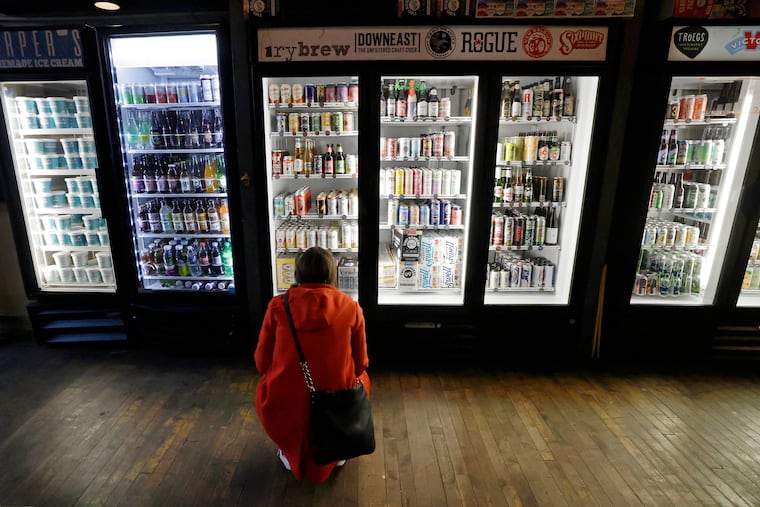5 Pennsylvania alcohol laws that can get you in trouble
We all know the rules about underage drinking. But did you know that there are a few other alcohol-related crimes to be wary of?

Philly is a city that knows how to have a good time — see: 2018′s Eagles’ Superbowl win. And this weekend the Phillies will be taking on the San Diego Padres in the National League Championship Series, hoping to secure their spot in the World Series.
While ticket sales are very expensive and limited, many people will be celebrating and enjoying the game on their own. But that doesn’t make it any less fun…or any less risky. While it might be fun in the moment, consuming alcohol can easily go south if you don’t know your state’s drinking laws.
And like many regulations, local governments also have their own take on what’s legal and what’s not when it comes down to it. Generally, in Pennsylvania, the legal drinking age is 21 years old. Anyone under 21 who buys or drinks an alcoholic beverage at a place that sells it is guilty of a misdemeanor, according to the state’s department of alcoholic beverage control.
But there are other ways you can get in trouble with alcohol that you might not know of. Here’s a breakdown of those crimes, including their possible fines and punishments. Keep in mind, being charged for any of the offenses below can result in a permanent criminal record and even have a negative impact on your car insurance if it’s vehicle-related.
Drinking in public
The tip of this iceberg starts with drinking in public. It is illegal to consume alcohol in public places in Philadelphia unless the space you are drinking in has permission/permits to do so from city government (like public beer gardens).
Rule of thumb: Only drink in places where it is legal to do so, like at your house, a friend or family’s residence, or an establishment that has the licensing or permits to serve you.
Penalties: Fines from $50 to $300. And depending on the circumstances, you can be incarcerated for up to 10 to 90 days.
Public drunkenness
Public intoxication, or sometimes referred to as “drunk and disorderly,” is a crime in Pennsylvania. According to state law, in order to be charged with public intoxication you have to pose a danger to yourself, others around you or property. That goes for alcohol and any other controlled substances, like cocaine or opioids.
Rule of thumb: Be mindful of how much and where you are drinking. If you are intoxicated in public, you can be charged with public intoxication.
Penalties: Fines of up to $500 to $1000, depending on how many times you’ve been caught.
Open alcohol container in public
According to Philadelphia ordinances, it is illegal to carry an open alcohol container in public spaces in Philadelphia. Public spaces include public property, city facilities and parks, streets, alleys, sidewalks, steps and other corridors where vehicles or people can freely travel through.
Rule of thumb: Finish your drink at the bar or if you bought alcohol at a store, wait until you get home or to a friend or family’s private property to start drinking.
Penalties: Fines from $50 to $300, and depending on the circumstances you can be incarcerated for up to 10 to 90 days.
Open alcohol container in a car
It is illegal for anyone in a vehicle to have an open alcohol container, including the passengers, and there’s little threshold for error. The law states that alcohol has to be transported in a vehicle’s trunk where it is out of physical reach from the driver and passengers of the vehicle.
If police find open alcohol containers in physical reach of anyone inside the car, then the driver and/or passengers can receive a citation. Additionally, the police will most likely begin investigating if the driver is intoxicated after seeing an open alcohol container. If the driver is proven to have a blood alcohol content that is 0.08 or higher, then the driver can be charged with Driving Under the Influence (DUI).
Rule of thumb: Don’t drink and drive. If you are driving and are transporting alcohol, make sure none of the containers are open and place all the alcohol in the trunk of the car.
Penalties: Fines up to $300, and in some cases you will be incarcerated for up to 90 days.
Driving under the influence (DUI)
Driving under the influence in Pennsylvania is very illegal and there are different levels of punishment depending on the circumstances. The law states that it is illegal to operate a vehicle if your blood alcohol content (BAC) is 0.08 or higher — that’s the baseline for being charged with a crime. The higher your BAC level and the more times you are caught driving under the influence, penalties increase and jail time is more likely.
Rule of thumb: Don’t drink and drive. Period.
Penalties: Fines from $300 to $10,000, and depending on how high your BAC is and the number of times you’ve been caught driving drunk you can face up to 5 days to 5 years in prison. Additionally, you can have your license suspended, be required to attend alcohol highway safety school and alcohol treatment, and have a breathalyzer installed in your car in order to start the engine.